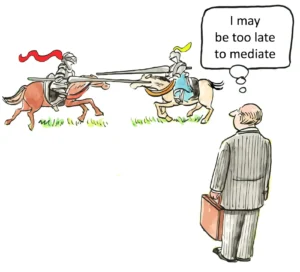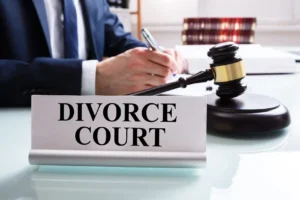The Role of Due Process in Administrative Hearings
Due process in administrative hearings represents one of the most fundamental yet frequently misunderstood aspects of our legal system. When government agencies make decisions affecting individual rights—whether revoking a professional license, denying benefits, or imposing penalties—the Constitution demands that these proceedings adhere to certain standards of fairness. These protections, though less robust than those afforded in criminal trials, nevertheless serve as essential safeguards against arbitrary government action. Understanding the scope and limitations of these protections has become increasingly important as administrative agencies continue to expand their regulatory reach into nearly every aspect of American life.
The constitutional guarantee of due process stems from both the Fifth and Fourteenth Amendments, which prohibit the federal and state governments, respectively, from depriving individuals of “life, liberty, or property, without due process of law.” This seemingly straightforward language has generated volumes of judicial interpretation, particularly regarding what process is “due” in various contexts. Administrative hearings—which occur outside traditional courtrooms and often follow streamlined procedures—present unique challenges in balancing efficiency with fundamental fairness.
Recent controversies surrounding immigration enforcement actions and the application of due process to non-citizens have highlighted the enduring importance of these constitutional guarantees. The current political landscape has reignited discussions about the scope and application of due process rights, particularly in administrative contexts where the full panoply of trial-like procedures may not apply. These debates reflect deeper questions about the proper balance between government efficiency and individual rights in our constitutional system.
Constitutional Foundations of Administrative Due Process
The concept of due process traces its lineage to the Magna Carta of 1215, which established that even the king was subject to the “law of the land.” This principle evolved through English common law and was eventually incorporated into American constitutional thought by the Framers, who were deeply concerned with protecting individual liberty against government overreach. The Fifth Amendment explicitly protects individuals from federal government overreach, while the Fourteenth Amendment extends this protection to state actions.
At its core, procedural due process requires that legal proceedings follow established rules designed to protect individual rights. This includes notice of the proceedings, opportunity to be heard, presentation of evidence, and judgment by an impartial tribunal. These requirements ensure that government actions are not arbitrary but instead follow predictable, fair procedures. The Supreme Court has consistently recognized that due process is not a fixed concept but rather a flexible one that calls for different procedural protections in different contexts.
The landmark case of Mathews v. Eldridge established the modern framework for analyzing what process is due in administrative contexts. The Court articulated a three-part balancing test that considers: (1) the private interest affected by the official action; (2) the risk of erroneous deprivation through the procedures used and the probable value of additional safeguards; and (3) the government’s interest, including the fiscal and administrative burdens that additional procedures would entail. This pragmatic approach recognizes that different situations may require different procedural protections, allowing for a tailored analysis that considers both individual rights and governmental interests.
The Unique Nature of Administrative Hearings
Administrative hearings differ significantly from traditional court proceedings in several important respects. They are typically conducted by administrative law judges (ALJs) or hearing officers who work within the agency itself, rather than by independent judges. The rules of evidence are often more relaxed, allowing for the admission of hearsay and other evidence that might be excluded in court. Procedures are generally less formal, with limited discovery and abbreviated presentation of evidence. These differences reflect the practical realities of administrative adjudication, which must balance fairness with efficiency in handling large volumes of cases.
The Administrative Procedure Act (APA) establishes the basic framework for federal administrative hearings, though many agencies operate under their own specific procedural statutes. The APA distinguishes between “formal” adjudications, which require trial-like procedures, and “informal” adjudications, which allow for more streamlined processes. Most administrative hearings fall into the latter category, with agencies given considerable discretion in designing their procedures.
Despite these differences, administrative hearings must still satisfy constitutional due process requirements. The Supreme Court has recognized that while administrative proceedings need not mirror judicial trials, they must provide the “fundamentals of fair play.” This means that even in the most informal administrative contexts, individuals must receive adequate notice of the proceedings against them and a meaningful opportunity to present their side of the case before an impartial decision-maker.
Essential Elements of Due Process in Administrative Hearings
The right to notice stands as perhaps the most fundamental element of administrative due process. Notice must be timely and provide sufficient information about the pending action to allow the individual to prepare an effective response. In Mullane v. Central Hanover Bank & Trust Co., the Supreme Court held that notice must be “reasonably calculated, under all the circumstances, to apprise interested parties of the pendency of the action and afford them an opportunity to present their objections.” This means that agencies must make good-faith efforts to inform affected individuals about proceedings that might deprive them of protected interests.
Equally important is the opportunity to be heard, which typically involves some form of hearing before an impartial decision-maker. The nature of this hearing varies depending on the context. In some situations, a formal trial-like proceeding with the right to present evidence and cross-examine witnesses may be required. In others, a more informal hearing or even written submissions may suffice. The key is that the individual must have a meaningful opportunity to present their case.
The right to an unbiased tribunal represents another critical component of administrative due process. Decision-makers must be impartial and free from conflicts of interest that might compromise their judgment. This requirement helps ensure that decisions are based on the merits of the case rather than extraneous factors or personal biases. However, the Supreme Court has recognized that the mere fact that an ALJ works for the agency bringing the action does not automatically create an unconstitutional bias. As the Court explained in Withrow v. Larkin, the combination of investigative and adjudicative functions within an agency does not, without more, constitute a due process violation.
The Mathews Balancing Test in Practice
The Mathews balancing test has become the cornerstone of modern administrative due process analysis. This flexible framework allows courts to tailor procedural requirements to the specific context, recognizing that “due process is not a technical conception with a fixed content unrelated to time, place and circumstances.” The application of this test demonstrates how courts weigh competing interests to determine what process is due in various administrative settings.
In cases involving significant private interests, such as the termination of disability benefits or professional licenses, courts typically require more robust procedural protections. For example, in Goldberg v. Kelly, the Supreme Court held that welfare recipients were entitled to a pre-termination hearing before their benefits could be cut off, given the crucial importance of these benefits to recipients’ survival. The Court emphasized that when “such benefits are a matter of statutory entitlement for persons qualified to receive them,” procedural due process requires a pre-termination evidentiary hearing.
By contrast, where the private interest is less substantial or the risk of erroneous deprivation is minimal, courts may find that more streamlined procedures satisfy due process requirements. In Mathews itself, the Court held that disability benefit recipients were not entitled to a pre-termination hearing, distinguishing these benefits from the welfare payments at issue in Goldberg. The Court noted that disability benefits are not based on financial need and that existing procedures, including the opportunity for a post-termination hearing, adequately protected against erroneous deprivations.
Limited Due Process Rights in Administrative Actions
It is important to recognize that due process rights in administrative proceedings are generally more limited than those in criminal trials. The Supreme Court has consistently held that administrative hearings need not provide the full panoply of procedural protections available in court. This reflects the practical realities of administrative adjudication, which must balance individual rights with the government’s interest in efficient decision-making.
For instance, while criminal defendants have a constitutional right to counsel, this right does not automatically extend to administrative proceedings. In Lassiter v. Department of Social Services, the Court adopted a case-by-case approach to determining when due process requires the appointment of counsel in civil proceedings, including administrative hearings. The Court suggested that counsel would be constitutionally required only in exceptional cases where the complexity of the issues or other factors make it unlikely that the individual could present their case effectively without assistance.
Similarly, while the right to confront and cross-examine witnesses is a cornerstone of criminal trials, administrative hearings may permit the introduction of hearsay evidence and other testimony that would be excluded in court. In Richardson v. Perales, the Supreme Court held that written reports by physicians who had examined a disability claimant could be considered as evidence in a Social Security hearing, even though the physicians did not testify in person and were not subject to cross-examination. The Court emphasized that “strict rules of evidence, applicable in the courtroom, are not to govern” administrative hearings.
Due Process in Licensing and Professional Discipline
Professional licensing boards and disciplinary committees represent one of the most common contexts for administrative hearings. These bodies regulate entry into and continued practice in various professions, from medicine and law to plumbing and cosmetology. When these agencies take action to deny, suspend, or revoke a professional license, due process requires that the affected individual receive adequate procedural protections.
The Supreme Court has long recognized that a professional license constitutes a protected property interest for due process purposes. In Bell v. Burson, the Court held that the suspension of a driver’s license requires “notice and opportunity for hearing appropriate to the nature of the case.” This principle applies with even greater force to occupational licenses, which often represent the culmination of years of education and training and provide the licensee’s primary means of livelihood.
The specific procedures required in licensing cases depend on the circumstances, but typically include notice of the charges or deficiencies, access to the evidence being used against the licensee, an opportunity to present contrary evidence and argument, representation by counsel, and a decision based on the record with a statement of reasons. Some licensing statutes provide additional protections, such as the right to subpoena witnesses or to appeal adverse decisions to the courts.
Administrative Due Process in Immigration Proceedings
Immigration proceedings present some of the most contentious questions regarding the scope of due process in administrative hearings. These proceedings, which determine whether non-citizens may enter or remain in the United States, are conducted by immigration judges within the Executive Office for Immigration Review, a component of the Department of Justice. The stakes in these cases are often extraordinarily high, potentially involving separation from family, return to dangerous conditions, or permanent exclusion from the United States.
The Supreme Court has long recognized that non-citizens within U.S. territory are entitled to due process protections. In Yamataya v. Fisher, the Court held that deportation without a hearing violated due process, establishing that “aliens who have once passed through our gates, even illegally, may be expelled only after proceedings conforming to traditional standards of fairness encompassed in due process of law.” This principle was reaffirmed in more recent cases like Zadvydas v. Davis, where the Court emphasized that “the Due Process Clause applies to all ‘persons’ within the United States, including aliens, whether their presence here is lawful, unlawful, temporary, or permanent.”
However, the precise scope of due process protections for non-citizens remains contested. The Supreme Court has recognized that Congress has broad authority over immigration policy, and courts have often deferred to the political branches in this area. This has led to what some scholars call the “plenary power doctrine,” which limits judicial review of immigration decisions. Recent controversies surrounding the Trump administration’s immigration enforcement policies, particularly the invocation of the Alien Enemies Act and the deportation of individuals like Kilmar Abrego Garcia, have highlighted tensions between national sovereignty concerns and constitutional protections.
Technology and Administrative Due Process
The digital revolution has presented new challenges for due process in administrative hearings. As agencies increasingly rely on technology for everything from evidence collection to decision-making, questions arise about how traditional due process principles apply in these novel contexts. These questions touch on issues ranging from electronic surveillance to algorithmic decision-making.
Electronic evidence in administrative proceedings raises important questions about authenticity, reliability, and access. When agencies rely on digital records, emails, social media posts, or other electronic information, affected individuals must have a meaningful opportunity to examine and challenge this evidence. This may require technical expertise that not all parties possess, potentially creating due process concerns if the playing field is not level.
The use of algorithms and artificial intelligence in government decision-making presents even more profound challenges. As agencies increasingly employ automated systems to make or assist with determinations affecting individual rights and interests, questions arise about whether such systems provide adequate procedural protections. Can a person meaningfully challenge a decision made by an algorithm they cannot understand? What disclosures are necessary to ensure fair process when automated systems are involved? Courts have only begun to grapple with these issues, which will likely become increasingly important as technology continues to advance.
Judicial Review of Administrative Decisions
Judicial review serves as a crucial safeguard for ensuring that administrative hearings comply with due process requirements. When individuals believe that an agency has violated their due process rights, they may seek review in the courts. This review typically occurs after the individual has exhausted administrative remedies, meaning they have completed all available proceedings within the agency itself.
The Administrative Procedure Act provides for judicial review of agency actions, allowing courts to set aside decisions that are “contrary to constitutional right, power, privilege, or immunity.” Courts reviewing administrative decisions for due process violations consider whether the agency provided adequate notice, a fair hearing, and an impartial tribunal. They also examine whether the decision was supported by substantial evidence and whether the agency followed its own procedures.
The scope of judicial review varies depending on the context. In some areas, such as immigration, courts have traditionally exercised more limited review due to the plenary power doctrine. In others, such as professional licensing, courts may conduct a more searching examination of agency procedures. This variation reflects the complex interplay between individual rights, agency expertise, and separation of powers principles that characterizes administrative law.
Current Controversies and Future Directions
Recent years have witnessed significant debates about the proper scope of due process in administrative hearings. These debates reflect broader questions about the role of administrative agencies in our constitutional system and the appropriate balance between efficiency and individual rights. Several key controversies have emerged that will likely shape the future of administrative due process.
One area of contention involves the status of administrative law judges. In Lucia v. SEC, the Supreme Court held that ALJs at the Securities and Exchange Commission are “Officers of the United States” who must be appointed in accordance with the Appointments Clause of the Constitution. This decision raised questions about the constitutional status of ALJs across the federal government and their independence from political control. The Trump administration subsequently issued an executive order exempting ALJs from competitive civil service requirements, potentially allowing for more political appointments. These developments have significant implications for the impartiality of administrative adjudication, a core component of due process.
Another controversy concerns the proper role of agencies in interpreting their own regulations and statutes. In Kisor v. Wilkie, the Supreme Court narrowed but declined to overrule Auer deference, which requires courts to defer to an agency’s reasonable interpretation of its own ambiguous regulations. Similarly, in recent cases involving the Chevron doctrine, which governs deference to agency interpretations of statutes, several justices have expressed skepticism about excessive judicial deference. These debates about deference doctrines have important implications for due process, as they affect the extent to which agencies can change the rules that govern administrative proceedings.
Conclusion
The role of due process in administrative hearings reflects the ongoing effort to balance effective governance with protection of individual rights. While administrative proceedings need not provide the full range of procedural protections available in criminal trials, they must still satisfy the fundamental requirements of notice, opportunity to be heard, and impartial decision-making. The flexible approach embodied in the Mathews balancing test allows courts to tailor procedural requirements to specific contexts, recognizing that different situations may call for different protections.
As administrative agencies continue to play a central role in our legal system, the importance of due process safeguards in administrative hearings will only grow. These protections serve not only to prevent erroneous deprivations of individual rights but also to promote public confidence in the fairness and legitimacy of agency actions. By ensuring that administrative proceedings adhere to basic standards of fairness, due process helps maintain the delicate balance between governmental power and individual liberty that lies at the heart of our constitutional system.
The challenges facing administrative due process will continue to evolve as technology advances, agency responsibilities expand, and political debates about the proper role of government unfold. Courts, legislators, and agencies themselves will need to adapt due process principles to new contexts while remaining faithful to the core constitutional commitment to fairness and justice. This ongoing process of adaptation and application ensures that due process remains a living principle, capable of protecting individual rights in an ever-changing administrative landscape.
Citations:
- Medical Research on Due Process in Healthcare Administration
- Procedural Due Process in Required Administrative Hearings
- Cornell Law School’s Guide to Procedural Due Process
- Understanding Due Process: Your Legal Rights and Protections
- Arbitrary and Capricious Standard in Court Applications Explained
- Challenging Agency Actions Under the Administrative Procedure Act
- Procedural Due Process Rights in Administrative State Proceedings
- Professor Litman Discusses Supreme Court’s Approach to Substantive Due Process
- Supreme Court Cases Organized by Due Process Topics
- Research on Administrative Due Process Requirements
- Judicial Review of Administrative Agency Decisions Explained
- Trump Administration’s Dismantling of Government Hurts Due Process
- Administrative Hearings as Sufficient Due Process for Deportees
- Virtual Courtrooms: Technology’s Impact on Legal Proceedings
- Due Process Requirements in Administrative Law Proceedings
- Trial Court Procedures and Functions in American Legal System
- Fifth Amendment Procedural Due Process Constitutional Requirements
- Limited Due Process Rights in Administrative Actions Explained
- Research on Administrative Hearings Due Process Requirements
- Academic Study on Administrative Due Process Standards
- Scholarly Analysis of Administrative Procedure Due Process
- Research on Due Process in Regulatory Proceedings
- Why Everyone Should Value Due Process Protections
- Due Process is a Necessity in Democratic Societies
- Legal Community Discusses Chevron Doctrine and Administrative Deference
- Law Students Debate Necessity of Administrative Law Course
- Opinion: Non-Citizens Should Not Get Judicial Hearings
- Federal Employees Advised to Appeal RIF and Adverse Actions
- Bar Exam Preparation for Procedural Due Process Questions
- Should Due Process Rights Apply to Non-Citizens?
- Third Circuit Rules on Due Process in Title IX Cases
- Law Students Find Administrative Law Hard and Boring
- Conservative Perspectives on the Value of Due Process
- Constitutional Law Help for Bar Exam Students
- Should Migrants Be Entitled to Due Process?
- Second Amendment Rights versus Due Process Considerations
- How to Request a Due Process Hearing for Special Education
- Fifth Amendment Due Process Clause Annotation
- Congressional Research Service Report on Due Process
- Indiana Law Repository Article on Administrative Due Process
- Fourteenth Amendment Due Process in Administrative Proceedings
- Oregon Administrative Rules for Special Education Due Process Hearings
- Legal Background for Administrative Adjudication Law
- Cornell Law School’s Guide to Due Process
- Oregon Administrative Procedures Act Full Text
- Fourteenth Amendment Due Process Clause Explained
- Washington State Due Process Hearing Request Requirements
- Procedural Streamlining of Administrative Hearings Federal Register Document
- Oregon Attorney General Model Rules for Administrative Procedures
- Research on Administrative Due Process Requirements
- Scholarly Analysis of Administrative Hearings Procedural Protections
- Academic Study on Due Process in Administrative Proceedings
- Research on Administrative Law Due Process Standards
- Public Law: Legal Foundations and Government Regulations Explained
- Arbitrary and Capricious Standard in Labor Law Cases
- Factors Courts Consider in Arbitrary and Capricious Decisions
- Administrative Procedure Act Explained: Federal Agency Operations Guide
- Retroactive Laws: When New Rules Apply to Past Crimes
- Arbitrary and Capricious Legal Standard Comprehensive Explanation
- Civil Liberties: Protecting Individual Rights Against Government Overreach
- Administrative Law: Agency Powers and Procedural Requirements
- Constitutional Law: Fundamental Rights and Government Limitations
- Key Cases Applying the Arbitrary and Capricious Standard
- Crime Control Model: Balancing Security and Due Process
- Public Law: Government Regulations and Legal Framework
- Research on Administrative Procedure Due Process Requirements
- Scholarly Analysis of Administrative Law Procedural Protections
- Academic Research on Administrative Hearings Due Process
- Study on Due Process in Administrative Adjudications
- Trump Supporters Discuss Government Administrative Procedures
- Did Obama Deny Due Process During His Deportation Policies?
- Judge Rules Trump Can’t Revoke Legal Status Without Process
- Due Process Rights Infringement in Immigration Enforcement
- Trump Administration Claims No Duty to Provide Hearings
- Fourth Circuit Denies Trump Administration’s Immigration Appeal
- Daily Discussion on New Changes to Italian Citizenship Laws
- Constitutional Implications of Denying Due Process Rights
- Trump Claims US Cannot Give Everyone a Trial
- Supreme Court Ruling Favors Trump on Immigration Enforcement
- Chief Justice Roberts Issues Administrative Stay in Immigration Case
- Changes to Italian Citizenship Laws Daily Discussion
- Trump Says Immigrants Shouldn’t Get Trials Before Deportation
- Oyez Supreme Court Case Database and Summaries
- How to Handle an Administrative Agency Hearing 2025 Event
- Ballotpedia’s List of Court Cases on Procedural Rights
- Administrative Law Advanced Course for Judges
- Administrative Law and Supreme Court Research Guide
- Pepperdine Study on Administrative Law Judge Independence
- COPA AFAPE Instagram Post on Administrative Procedures
- Steve Vladeck on Due Process and Rule of Law
- Pepperdine Article on Administrative Law Judge Independence
- Washington State Special Education Due Process Hearing Decisions
- US Administrative Law of Rulemaking: 2024 Supreme Court Cases
- State Court Report on Civil Due Process Issues
- The Jarkesy Decision and Future of Administrative Proceedings
- Research on Administrative Law Procedural Requirements
- Scholarly Examination of Due Process in Civil Cases
- Academic Study on Administrative Hearings Procedural Protections
- JD Vance’s Position on Due Process in Immigration Cases
- Trump’s Position on Trial Rights for Immigrants
- Libertarians Discuss Erosion of Due Process Rights
- Debate on Due Process Rights for Non-Citizens
- Research on Administrative Adjudication Procedural Requirements
- Research on Procedural Due Process Requirements
- Scholarly Analysis of Administrative Law Due Process
- Research on Administrative Hearings Constitutional Requirements
- Academic Study on Administrative Due Process Standards
- Research on Procedural Fairness in Administrative Proceedings
- Academic Analysis of Administrative Law Ethics
- Scholarly Research on Administrative Procedure Act Implementation
- Research on Administrative Agency Decision-Making Standards
- Academic Study on Administrative Law Judicial Review
- Administrative Hearings as Sufficient Due Process for Deportees
- Debate on Constitutional Crisis vs Crisis of Truth
- Alliance for Justice 2024-2025 Supreme Court Term Preview
- Video Explanation of Administrative Due Process Requirements




















